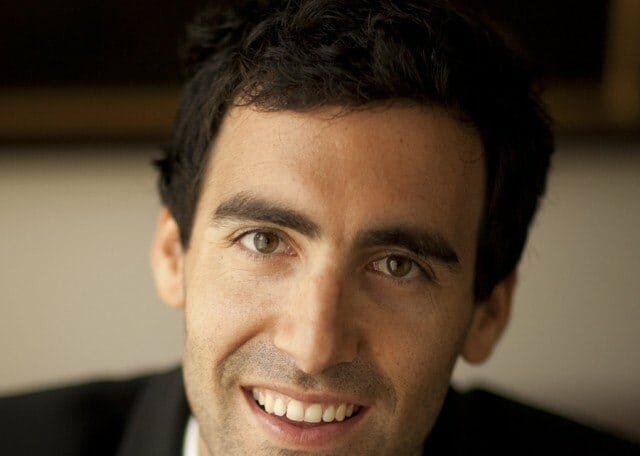[quote style=”boxed”]Refine your narrative. Stories are really powerful and being able to tell a good story helps you attract customers, investors and recruits.[/quote]
What are you working on right now?
Trying to recruit talented developers and data scientists to Kaggle.
Where did the idea for Kaggle come from?
I was doing an internship with the Economist magazine. I was writing a piece on the coming age of big data. When you say you’re from The Economist, everybody wants to talk to you so I had the chance to interview big company CIOs. Most said that using the insights of big data was a priority but the product is difficult to buy. When choosing between one vendor offering a Support Vector Machine for $6 million and another offering a neural network for $5 million, it’s impossible to know which will work best.
The irony of this situation is that in the academic community, most data scientists are struggling to get access to real-world data.
This is a classic market failure and Kaggle is the solution: match up companies that have piles and piles of data with researchers pining for access to it.
What does your typical day look like?
The only structured part is the skate to the office (I’ve recently taken up roller blading). Otherwise, early stage startup life is a bit all over the place. Last quarter I spent much of my time pitching to investors. This quarter I spend much of my time reading resumes. As one of my colleagues puts it, from VCs to CVs.
How do you bring ideas to life?
I tend to feel a sense of urgency when there isn’t one. It’s both a strength and a flaw. It means I get things done but also means I can’t relax.
What’s one trend that really excites you?
A bit obvious given that I run a data startup, but the trend to open data. One of the things Kaggle has shown is that if you open up your data to a wide audience, pretty awesome stuff can happen. In Kaggle’s case, opening up data has helped astronomers map data matter and HIV researchers predict the progression of HIV viral load.
What was the worst job you ever had and what did you learn from it?
Worst Job: working in the toy department of Target during Christmas.
Lesson Learned: apply to move to the hosiery department 2 months before Christmas.
If you were to start again, what would you do differently?
I came to programming pretty late. I wish I’d started at a younger age.
As an entrepreneur, what is the one thing you do over and over and recommend everyone else do?
Refine your narrative. Stories are really powerful and being able to tell a good story helps you attract customers, investors and recruits.
What is one business idea that you’re willing to give away to our readers?
The market for talent is huge and terribly inefficient, so there must be opportunities for disruption. One small idea in this vein is a chat roulette for job applicants. Job applicants queue up at a given time and the interviewer clicks the “X” when they’ve heard enough and want to reject the candidate. If an employer doesn’t feel like they have to grant a full hour to a job applicant, they might be willing to interview with more speculative candidates, possibly meaning they end up rejecting fewer qualified candidates.
What are your three favorite online tools and what do you love about them?
I’ll do one fun, one life and one work:
- Fun: The Lark because I like quantified-self.
- Life: Safeway online because having my groceries delivered is really convenient.
- Work: SHL’s online aptitude test is the tool I’m playing with right now.
What is the one book that you recommend our community should read and why?
Surely You’re Joking, Mr. Feynman! by Richard Feynman and Ralph Leighton. It’s inspiring and a great illustration of the power of curiosity.
What’s on your playlist?
I let Pandora decide. My tastes are a bit offbeat. At the moment I’m rotating between a big band station, an Edith Piaf station and a Klezmer station.
If you weren’t working on Kaggle, what would you be doing?
House husband.
Three people we should follow on Twitter and why?
- @GlennF: Glenn Fleishman is funny.
- @mewo2: Martin O’Leary is also funny
- @jeremyphoward: Jeremy Howard shares great stuff that you don’t see elsewhere.
When was the last time you laughed out loud? What caused it?
When I learned that one of Kaggle’s best members was featured in Glamour magazine as a Prince William look-a-like around the time of the royal wedding. Can’t imagine that too many Kaggle members have been featured in Glamour magazine.
Who is your hero?
Having recently watched the Search for Bobby Fischer, I think Josh Waitzkin is pretty awesome. Reaching the top of his field in two distinct disciplines, chess and Tai Chi, is remarkable.
If you could change one law, what would it be?
The law of gravity. I’m a kite surfer who’d like to be able to jump higher.
Do you have a personal philosophy?
A lot of what we take to be true is complete rubbish and questioning conventional wisdom can be hugely rewarding.
Connect:
Kaggle Website: Kaggle.com
Anthony Goldbloom on Facebook: Anthony Goldbloom
Anthony Goldbloom on Twitter: @antgoldbloom
Anthony Goldbloom on LinkedIn:
Mario Schulzke is the Founder of ideamensch, which he started a decade ago to learn from entrepreneurs and give them a platform for their ideas.

